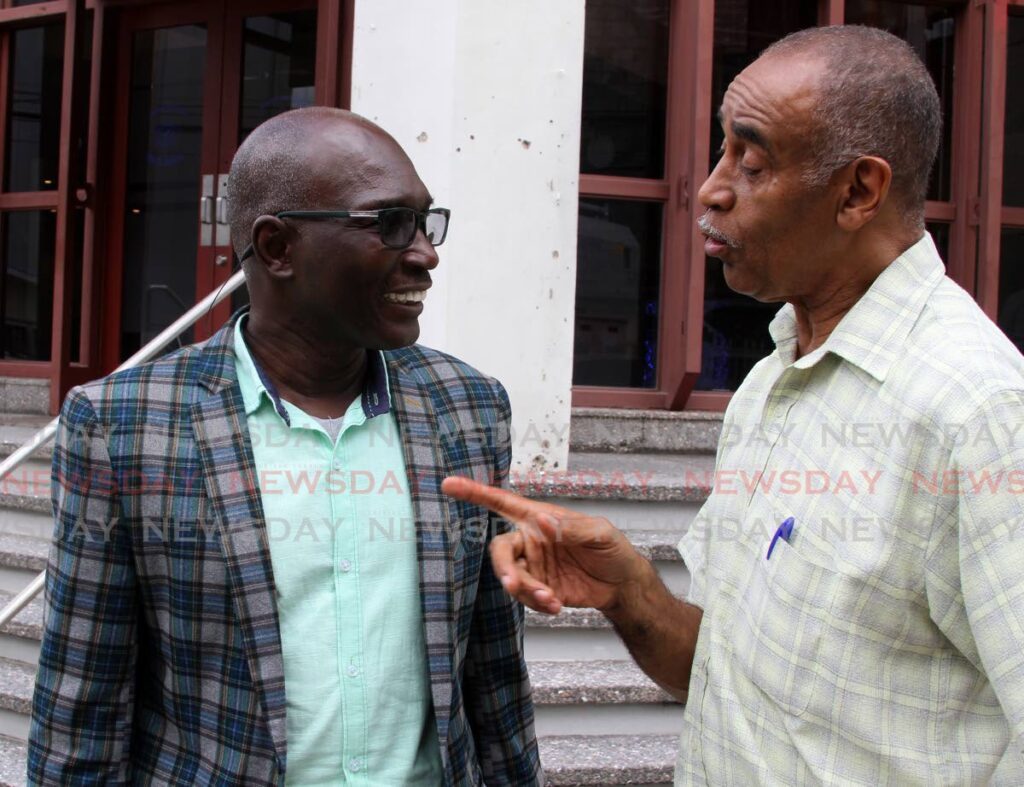Ex-cop, calypsonian afraid to return home – Crime puts the fear into 'Watchman'

DESPITE having worked in war-torn countries, retired police officer, former head of the UN Regional Conduct and Discipline Unit and calypsonian Wayne "Watchman" Hayde says crime levels in Trinidad and Tobago have left him in fear of returning home.
Speaking via Zoom at a civil-society crime summit hosted by the People’s Roundtable on January 31 at the Cipriani Labour College in Valsayn, Hayde who is based in Kampala, Uganda, said the murder rate and overall serious crime levels in TT are unacceptable.
“As a policeman and someone who has been all over the world and in very dangerous places, I feel more fearful being in my own country than out here. Whether it is Lebanon, East Timor, Sudan, Rwanda...wherever I am, I have no such fear as I do when I come home to my country,” Hayde said.
Hayde, who never completed secondary school, joined the police and later acquired two bachelor degrees, two masters’ degrees and his doctorate, and became an attorney.
He twice applied for the post of police commissioner, in 2017 and 2022, but his age was said to be the determining factor in his not being considered, since back then, he was already in his sixties.
Hayde, whose unit also covered UN peacekeeping operations in Israel, Syria, Cyprus and Italy, said despite the crime levels, he was not in support of soldiers being put on the street as a solution to crime, as declared by the Prime Minister at a PNM public meeting in Barataria earlier in January.
“Soldiers are trained for war. They are not trained to be police. In short-term situations, in emergency situations, during times of high stress, then yes, it is necessary to bolster or enhance in order to address community issues. But it is not a solution to crime.”
He said government should adopt another approach by focusing instead on stricter gun laws.
Hayde said stopping guns from entering is not an easy task, as TT is an island nation. He said its geographic location means there will always be an issue with border control and preventing the flow of illegal items, including firearms, into the country.
He said there needs to be more effort by Parliament to increase the penalties for gun possession to provide a more effective deterrent.
“We have to make TT a country where the possession and use of guns will be treated so severely that people must know that touching one will put them away for a very long time, if not forever.” He admitted, “It is a drastic solution. It is an extreme solution, but these are extreme times.”
Hayde described the issue of bail for gun crimes as a legislative and constitutional weakness.
“People are aware that no matter what crimes they are charged with, the question of bail, the question of basic human rights and the non-penalty that we presently have protect them and allows them to get back out on the street to go and kill more people.”
He said a crackdown on guns will likely lead to a reduction in murders.
“If we remove guns from the equation, we will not be talking about this problem. It will be about something else, because they won’t be murdering so many people with knives, cutlasses and slingshots.”
Hayde said he believes it is only a matter of time before gun violence affects fetes.
He said the best option is for politicians to work together to address gun violence through passing harsher, punitive legislation.
“The government and opposition must stop talking separately, stop trying to one-up the other and address weaknesses in our judicial system. We must have expedited trials for gun cases and mandatory (custodial) sentences for gun-related crime.”
Hayde, who founded the Police Social Welfare Association, said while societal solutions to crime are welcomed, the effects of these will not be immediate.
“We have to be aware of the fact that no matter what we talk about, no matter how much we want to postulate very good societal solutions, some of you might be dead before the solutions even get the chance to affect society in a positive way.”
The People's Roundtable comprises several non-governmental organisations, community-based groups, civil-society organisations and social movements.

Comments
"Ex-cop, calypsonian afraid to return home – Crime puts the fear into ‘Watchman’"